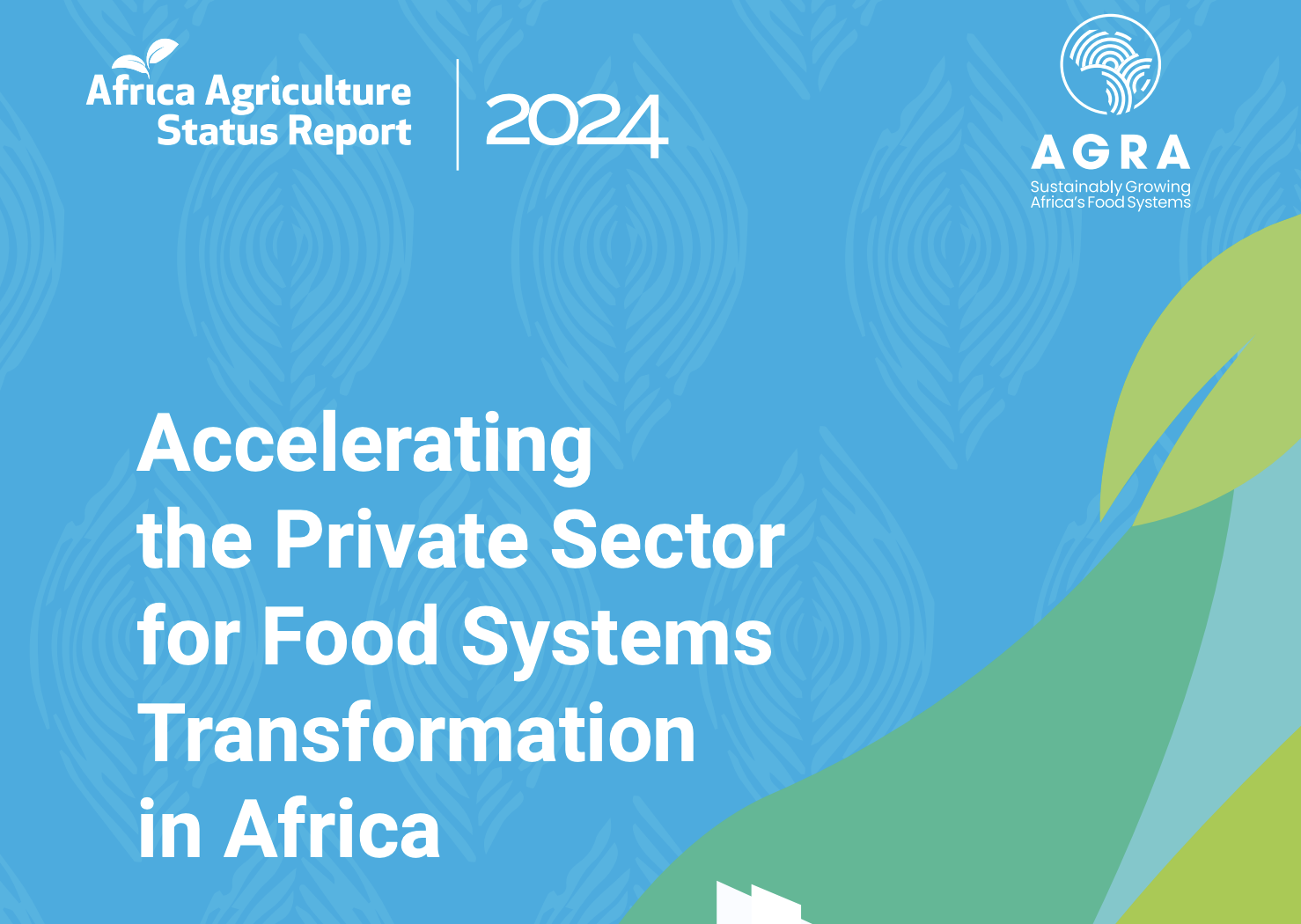Kilimokwanza.org Reporter
The 2024 Africa Agriculture Status Report (AASR), titled “Harnessing the Private Sector for Food Systems Transformation in Africa,” identifies Nigeria as one of the least performing countries in terms of agricultural productivity and value addition. The report highlights several underlying issues that have hindered the country’s agricultural growth, despite its vast potential.
Challenges Facing Nigeria’s Agricultural Sector
The report notes that Nigeria continues to face significant challenges that constrain its agricultural sector. Among these, inadequate infrastructure, limited access to finance, and inefficient policy frameworks are the most pressing. “Agricultural SMEs in Nigeria struggle to access credit due to high perceived risks and low returns,” the report states. It further explains that, compared to other sectors, agriculture is seen as a higher risk but lower return investment, which discourages financial institutions from providing the necessary capital for growth.
Moreover, the report highlights Nigeria’s struggle with poor infrastructure, particularly in rural areas where most agricultural activities occur. “The lack of good roads, reliable electricity, and efficient water supply systems severely limits the ability of farmers and agribusinesses to operate effectively,” the report points out. These infrastructure deficits not only increase production costs but also reduce Nigerian agricultural products’ competitiveness in both domestic and international markets.
Coordination and Policy Implementation Issues
The AASR 2024 emphasizes that Nigeria’s poor performance is also a result of inadequate coordination between various government bodies responsible for agricultural development. “There are systemic coordination failures between national and local governments, which lead to misaligned priorities and inefficient resource allocation,” the report reveals. This lack of coordination often results in fragmented efforts that fail to create a cohesive strategy for agricultural development.
Additionally, the report discusses the inefficiencies in Nigeria’s Special Economic Zones (SEZs) and Agro-Industrial Parks (AIPs), which were intended to boost agro-processing and value addition. “Many of these zones lack the necessary infrastructure and services, such as machinery repair services, testing laboratories, and training centers for low-skilled labor,” the report explains. As a result, these zones have not achieved their intended development objectives and have become additional bottlenecks rather than solutions.
Impact of Climate Change and External Shocks
Nigeria’s agricultural sector is highly vulnerable to external shocks, including climate change and global economic fluctuations. “The sector is particularly exposed to climate risks, such as extreme weather events, which can disrupt agricultural production and supply chains,” the report states. In addition, the reliance on imported agricultural inputs, such as fertilizers, makes the sector susceptible to international market volatility and trade restrictions.
The Way Forward: Recommendations for Nigeria
To address these challenges, the AASR 2024 recommends a multi-faceted approach. “There is a need for a comprehensive strategy that includes significant investments in infrastructure, improved access to finance, and better coordination between government agencies,” the report suggests. It also calls for a greater emphasis on building resilience against climate change and enhancing the capacity of local agricultural producers through targeted support and training programs.
The report concludes with a call to action for the Nigerian government and its development partners to prioritize agricultural development as a key driver of economic growth and food security. “By addressing the structural challenges that hinder agricultural productivity, Nigeria can unlock its vast potential and transform its agrifood systems for the better,” the report asserts.
